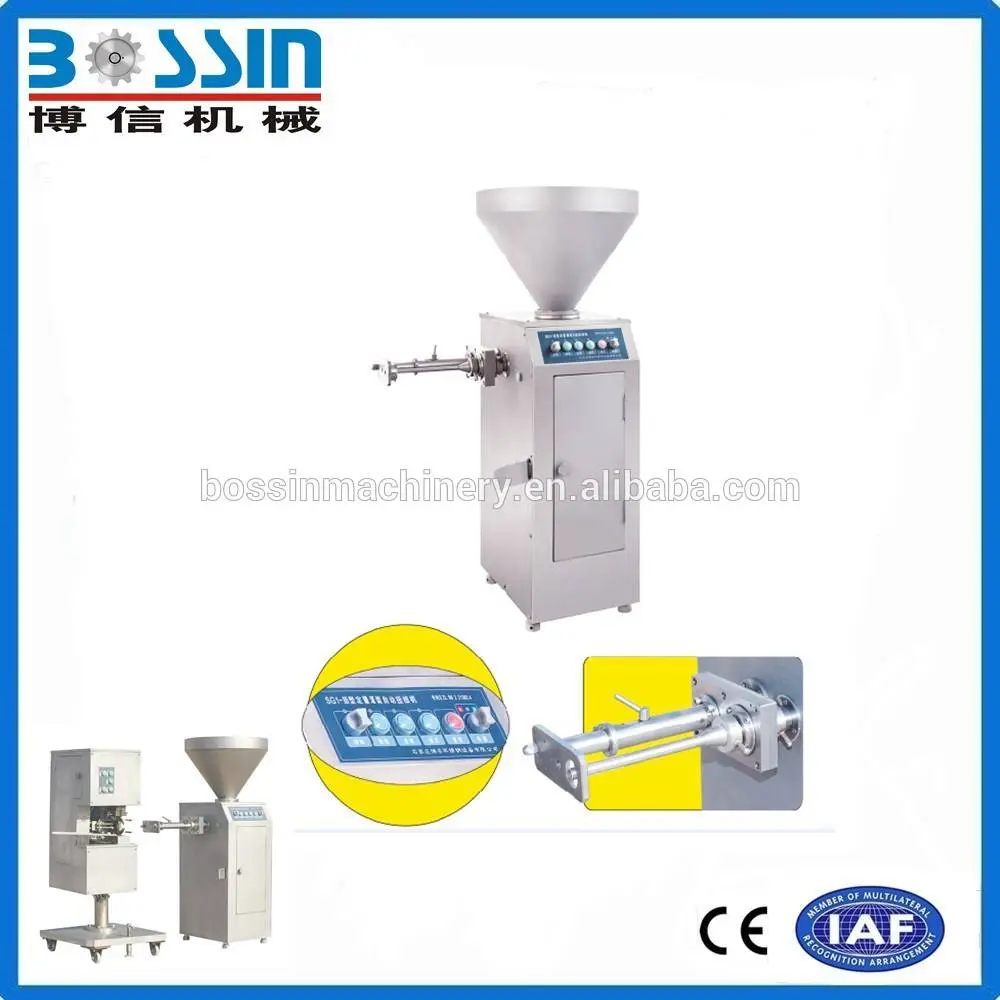
Mar . 19, 2024 12:22 Back to list
What Is A Sausage Maker Called?
What is a sausage maker called?
A sausage maker can be known by various names, each reflecting different cultural traditions and regional preferences. The art of sausage-making has been practiced for centuries, evolving from simple techniques to more complex processes. These artisans who dedicate their skills to the craft of sausage making are highly knowledgeable and play a crucial role in providing high-quality sausages to consumers. This article will delve into the world of sausage makers, exploring their various titles and shedding light on their significant contributions to the culinary world.
Historical Perspective:
The history of sausage making can be traced back to ancient civilizations, where preserving meat was of utmost importance. Early sausage makers, known as "butchers," would carefully select meat cuts, season them with herbs and spices, and stuff the mixture into casings made from natural materials. These butchers possessed extensive knowledge of meat processing, the correct balance of flavors, and the art of preservation.
The Rise of a Specialist:
As time progressed, a new class of sausage makers emerged. These specialists devoted themselves solely to the craft of sausage making. In some cultures, they came to be known as "charcutiers." The term charcutier finds its origins in France, where these artisans refined their techniques and mastered the art of curing and processing meat. These skilled professionals not only produced sausages but also created a wide range of cured and smoked meats, pâtés, and terrines.
Sausage Makers: A Global Perspective
While the titles may differ across cultures, the role of a sausage maker remains consistent worldwide. Let''s explore some of the various names these artisans are known by in different regions.
1. Sausage Maker/Butcher:
In many English-speaking countries, a sausage maker is simply referred to as a "sausage maker." This term is synonymous with butcher, as their work often overlaps with the preparation and processing of meat products. These professionals possess in-depth knowledge of various cuts of meat, seasoning combinations, and the safe handling of raw meats.
2. Wurstmeister:
In Germany, a country renowned for its sausages, a sausage maker is often referred to as a "Wurstmeister." This title is a combination of two German words: "Wurst" meaning sausage and "Meister" meaning master. Wurstmeisters are highly skilled individuals who have undergone extensive training and apprenticeships to learn the secrets of traditional German sausage making. They take great pride in preserving the rich culinary heritage of their country.
3. Salumiere:
In Italy, a sausage maker is commonly known as a "salumiere." The term originates from the Italian word for cured meats, "salumi." Salumieres are experts in producing a vast array of Italian delicacies, including sausages, prosciutto, bresaola, and mortadella. These skilled artisans carefully balance flavors and use age-old techniques to produce some of the world''s most renowned cured meats.
4. Chacinero:
In Spain and certain Latin American countries, a sausage maker is called a "chacinero." This term is derived from the Spanish word "chacina," which refers to the cured or smoked meat products made by these artisans. Chacineros are well-versed in the traditional techniques of Spanish charcuterie, which includes the production of chorizo, salchichón, and lomo embuchado. They prioritize quality ingredients and time-honored methods in their craft.
5. Salsicciaio:
In Italy, specifically in the region of Calabria, a sausage maker may be known as a "salsicciaio." This title represents their specialization in crafting a specific type of Italian sausage called "salsiccia." Salsiccia makers have honed their skills over generations, using family recipes and carefully selected ingredients to produce traditional Calabrian sausages known for their robust flavors.
The Modern Sausage Maker:
While traditional techniques still hold immense value, the advent of modern technology has influenced the craft of sausage making. Automated machinery and advanced equipment have streamlined processes, ensuring consistency in product quality and increasing production efficiency. However, skilled artisans continue to play a vital role in developing recipes, ensuring the right balance of flavors, and maintaining the integrity of traditional sausage-making practices.
Conclusion:
Irrespective of the title they hold, sausage makers are the unsung heroes behind the delicious sausages consumed globally. Their expertise, attention to detail, and commitment to preserving culinary traditions make them invaluable contributors to the food industry. So, the next time you savor a well-crafted sausage, take a moment to appreciate the dedicated artisans who have carried forward the art of sausage making through the ages.
